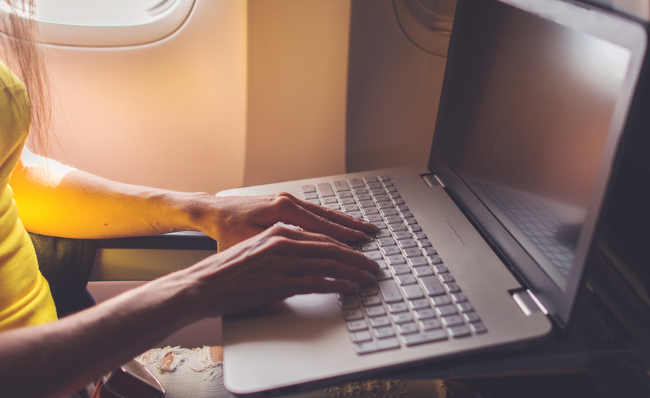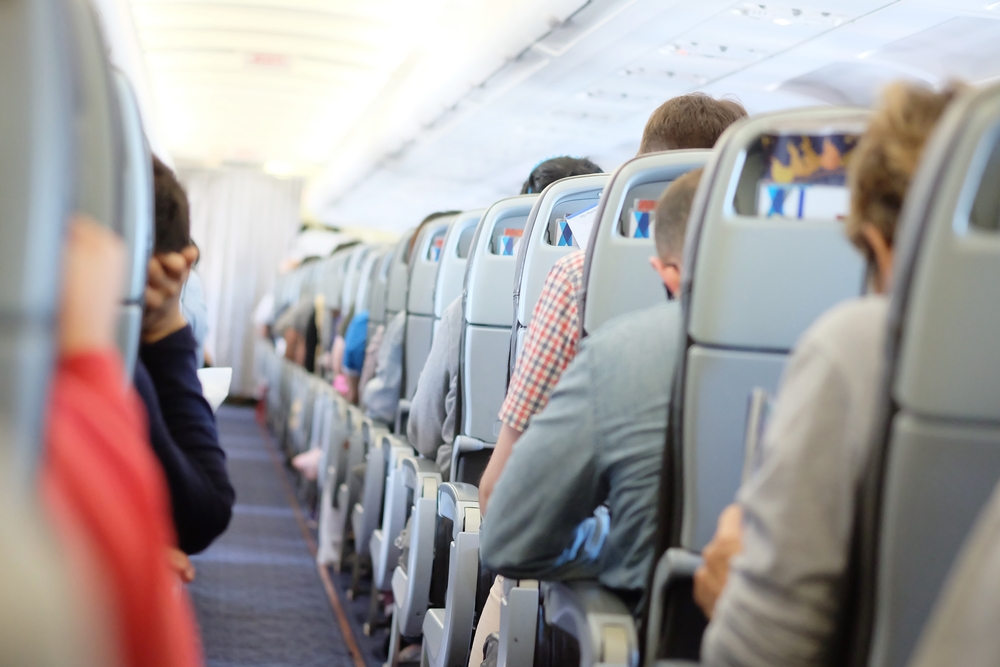
Today, the Trump administration announced that inbound flights from certain parts of the world, notably the Middle East, can no longer allow passengers to carry large electronics such as laptops and electronic gaming systems in the cabin. The ban, swiftly implemented in the UK as well, comes due to concerns of bombs being stored in these devices. But the ban itself makes no sense on a security level. It makes a lot of sense, however, on a political one.
The rule is odd in how specific it is. Essentially, all “large electronics” — defined as anything larger than a smartphone, will need to be placed in checked baggage on direct flights to the US from ten airports: Queen Alia International Airport, Cairo International Airport, Ataturk International Airport, King Abdul-Aziz International Airport, King Khalid International Airport, Kuwait International Airport, Mohammed V Airport, Hamad International Airport, Dubai International Airport, and Abu Dhabi International Airport.
If we were really talking about security, any potential explosives would do just as much damage in the cargo hold as they would in the cabin. But here’s where it gets counter-intuitive: pilots aren’t fans of lithium batteries — which most of our portable electronics run on — and for good reason. There have been many, many incidents of lithium batteries putting flights at risk since 1994, and battery risk was what grounded the Galaxy Note 7. Pilots prefer lithium batteries where they’re closer to fire prevention tools, if they must be on the plane at all. Not burning away in the hold. So this idea could actually be making flights far less safe.
Not helping matters is the fact that the reasons behind this rule are vague at best. The DHS doesn’t even cite specific intelligence when announcing the rule:
We have reason to be concerned about attempts by terrorist groups to circumvent aviation security and terrorist groups continue to target aviation interests. Implementing additional security measures enhances our ability to mitigate further attempts against the overseas aviation industry.
In other words, there may or may not be a threat, and we may or may not be told what it is at an unspecified time. Why these particular airports (all, it should be noted, in the Middle East and most in Muslim-majority countries) and airlines? Why electronics, specifically? We don’t know. In fact, we may never know.
Furthermore, if the goal is to stymie terrorists, any terrorist who understands air routes would find it easy to get around. The rule only requires laptops in the hold for direct flights from a handful of airports. It would be simple to fly to another hub in Europe, such as Frankfurt, which isn’t affected by the rule, and fly from there.

So why pass the rule in the first place? Washington Post analysts have an alternative explanation: It’s an attempt to get back at state-funded airlines, who are facing an enormous loss of business.
Business travelers are disproportionately likely to want to work on the plane — the reason they are prepared to pay business-class or first-class fares is because it allows them to work in comfort. These travelers are unlikely to appreciate having to do all their work on smartphones, or not being able to work at all. The likely result is that many of them will stop flying on Gulf airlines, and start traveling on U.S. airlines instead.
Protectionism has been a sore spot for years among politicians and airlines across the world, and of the nine airlines most heavily affected, eight have at least some financial ties, and thus preferential treatment, to state governments. While the US has largely deregulated airline travel, thanks to Jimmy Carter, most airlines are still protected by the countries they fly from in some ways.
Of course, all of this relies on what amounts to a free-flowing system of travel, where you can more or less hop on a plane and go anywhere in the world if your credit card (or expense account) is good for it. The Trump administration seems to have found a loophole to make that more complicated, or at least annoying. The question for travelers now becomes how much work they can do on their smartphones, and how long the rule will be in place.
(via Washington Post)
